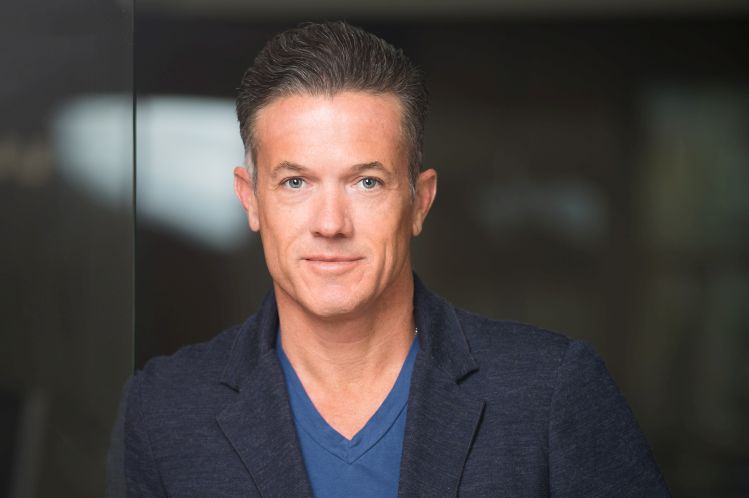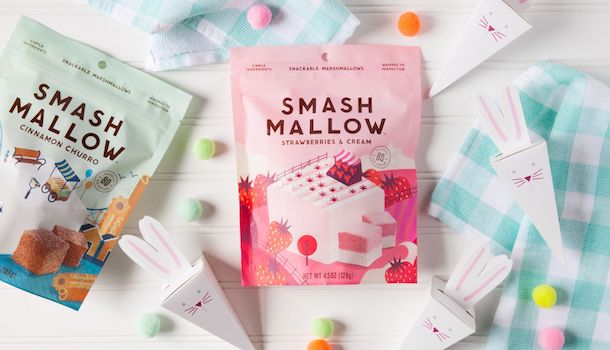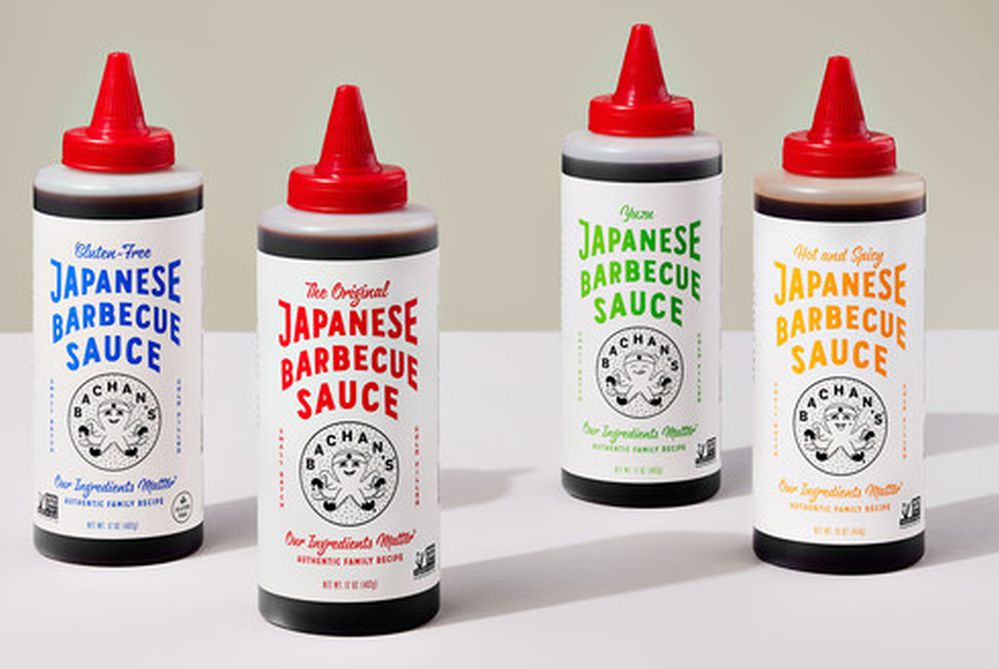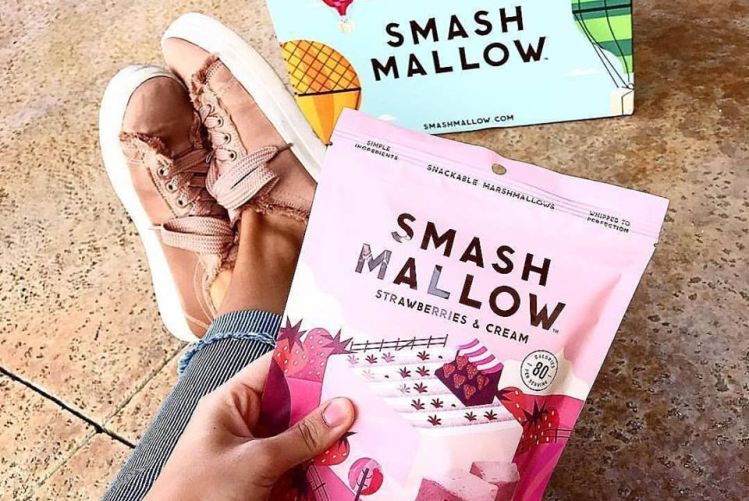Smashmallow—a snackable marshmallow brand created by food & beverage investor and incubator Sonoma Brands Capital—has been awarded $21 million plus attorneys’ fees after a lengthy legal battle* with an equipment manufacturer that failed to deliver on its promises.
Sonoma Brands Capital founder Jon Sebastiani, a high-profile entrepreneur and investor best-known for building the KRAVE jerky brand, told AgFunderNews: “They tried to trick us, we held them responsible, and we ultimately won.”
A clean-label snacking marshmallow brand featuring gourmet flavors and resealable packaging, Smashmallow attracted $10 million in funding from Sonoma Brands Capital and VMG Partners in early 2018, and additional capital from Alliance Consumer Growth in 2019.
Registering ‘explosive’ growth, Smashmallow secured distribution in several thousand stores in the US including Target and Whole Foods, which prompted Sebastiani to strike a deal with a Dutch firm called Tanis Food Tec to invest in bespoke machinery capable of producing the products at scale using organic cane sugar, rather than the standard corn syrup, as the number one ingredient.

‘There was no light at the end of the tunnel’
According to Sebastiani: “Before this, we’d been making the products by a handmade process in bakeries with excess capacity, which obviously wasn’t scalable.
“Tanis Food Tec B.V [which was acquired by food equipment manufacturer Orangeworks in 2020, which was in turn acquired by private equity firm Vado in 2022] was well-known for working with big names in the CPG industry. After months of back and forth, we signed an iron-clad contract under which they were going to build us a proprietary specialized machine to produce Smashmallow that could coat all six sides of the [marshmallow] cube. They sent us an ‘official sample’ of our top-selling product which they claimed was produced on the new machine, but we later learned had been made by hand.
“We cut a deal with Wolfgang Confectioners to build an entire facility to accommodate a machine that arrived late and ultimately didn’t work. During the trial, their engineers admitted that there was nothing specialized about the machine, but it came off the shelf. It never hit the volume targets that the contract promised, there was massive wastage, costs surged, and the quality was not there, which was catastrophic to the brand.
“We then found that the machine was also creating flammable airborne particles [which it was unable to effectively filter out, creating a fire risk and health & safety issues].”
As a result of the the equipment’s shortcomings, Smashmallow was in turn unable to meet production capacity requirements agreed with Wolfgang Confectioners, and incurred “significant consequential damages,” according to its May 2021 complaint.*
“There was just layer after layer of violation and breach of contract,” said Sebastiani. “There was no light at the end of the tunnel and we were forced to wind down the business and pursue litigation.”

‘I will pursue every last dollar we are owed’
He added: “The jury trial [in Santa Rosa, California] lasted five weeks, I was personally on the stand for almost five days. The jury overwhelmingly saw culpability in Tanis [it found in Smashmallow’s favor over claims of breach of contract] and I will pursue every last dollar we are owed, that is my mission and my responsibility.
“The ruling was for $21 million plus costs, which includes attorneys’ fees. But building out the manufacturing facility around the machine is also considered a reimbursable expense, so I’d say we’re owed closer to $30 million.”
Asked what could be salvaged from the whole experience, he said: “Looking back, we did two things right, we wrote an ironclad contract that laid out a very clear indemnification of all losses experienced by Smashmallow if the machine didn’t work. Second, we didn’t let it go. I think a lot of investors are so busy with so many different portfolio companies that when something doesn’t work out, they just bankrupt it out and move on. Well, I’m not willing to do that.”
With hindsight, he said, “Should we have flown over to the plant, filmed the machine and had someone monitoring it? Yes, but they had a good reputation, we trusted them, and we trusted that the samples they sent us were truthfully produced off the machine.”
The evolving CPG investment landscape
Founded in 2015 after Sebastiani sold his premium jerky brand KRAVE to Hershey for $218 million, Sonoma Brands Capital began by incubating and investing in food and beverage brands but has since expanded its scope to health & wellness, beauty and personal care, and pet care.
“But we’re still in food and we’re very proud of the recent investment that we made in [Japanese BBQ sauce brand] Bachan’s, which is growing absolutely off the charts,” said Sebastiani.
KRAVE, which Sebastiani bought back from Hershey in 2020, has stabilized after his team fixed quality issues and established a new manufacturing set up, he claimed. “We’ve recently brought in new leadership and built an independent team, but we’re not burning money for growth.”

‘A day of reckoning’
Stepping back to look at the food investment landscape, he said, “Several years ago you could raise on the promise of delivering margin, and now you better have done it. Strategics are also very much looking at profitable businesses and not just somewhat profitable. There are always exceptions, so think of that high flying brand that’s not yet profitable, but it could be, like Guayaki, which is investing in growth as it is playing in a category [energy drinks] that’s so huge.
“But for smaller brands that are playing in smaller sectors, as investors, we need to think about how long are we going to be in this? How much capital is this business going to need before it’s at a scale to be acquired before it can become profitable?
“I think there’s a day of reckoning for a lot of brands out there as there’s no real exit scenario for them.”
AgFunderNews has reached out to Vado (parent company of Orangeworks/Tanis Food Tec) for comment.
*The case is: SMASHMALLOW, LLC, v. TANIS FOOD TEC B.V, case # SCV-268477 filed in the superior court of California, Sonoma County, on May 26, 2021. The jury verdict was recorded on October 20, 2023. Smashmallow was represented by law firm BraunHagey & Borden LLP.





